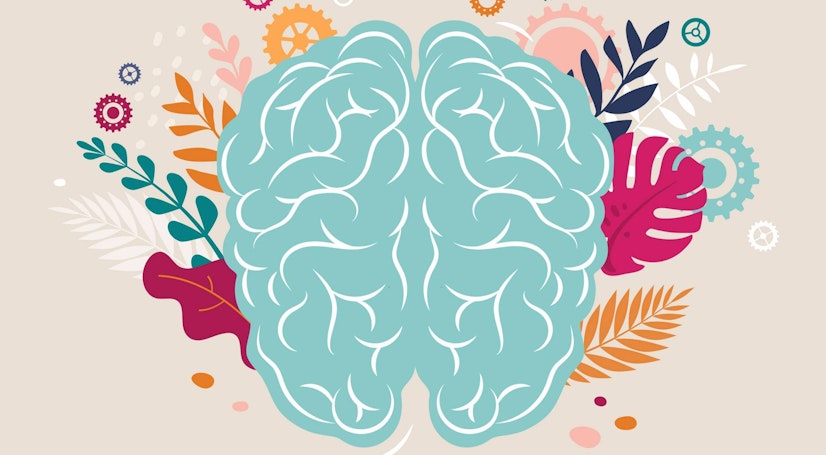9 Signs You Should See a Therapist and Why You Would Benefit

Psychotherapy, talk therapy, counseling, or simply therapy—no matter the name it’s known by, speaking with a mental health professional can benefit people struggling with emotional difficulties, life challenges, and mental health concerns.
Mental health issues are common. Recent statistics from the National Alliance on Mental Health show one out of every five American adults live with a mental health condition, while one in 25 adults live with a serious mental health condition.
But only about 40% of people with mental health issues get help. Untreated mental health issues often get worse and may have other negative effects, leading to:
- Inability to work or go to school
- Difficulty in relationships or taking care of children
- Increased risk of health issues
- Hospitalization
- Suicide
Suicide is the second leading cause of death for people in the United States between the ages of 10 and 34. About 90% of people who die by suicide in the U.S. lived with a mental health condition.
Therapy can help improve symptoms of many mental health conditions. In therapy, people learn how to cope with symptoms in healthy and productive ways. Psychiatric medication can reduce some symptoms of mental health conditions, but therapy teaches people skills to address symptoms and gain a deeper awareness of their triggers and patterns. These skills are invaluable, and they persist after therapy concludes. Even if you experience struggles again in the future, you will be better prepared to cope or seek support again. Research shows the benefits of therapy last longer than medication alone.
Jump to:
Do you need therapy?
Telling someone they should go to therapy or that they need therapy can be stigmatizing. It may be difficult to watch a loved one deal with mental health challenges, but it’s important for people to choose to seek help on their own — as long as they aren’t putting themselves or anyone else in danger.
Encouraging someone you care about to look into possible therapy options, even offering to review potential therapists with them, is generally a better way to show support. People who feel forced into therapy may feel resistant and find it harder to put in the work needed to make change.
While therapy can help people work through issues that lead to thoughts of suicide, it’s usually not the best immediate option for people in crisis. If you are in crisis, you can get help right away by reaching out to a suicide helpline through phone, text message, or online chat. If you are at risk of hurting yourself, you can also visit your local emergency room. They can provide you with immediate support. A therapist can help support you going forward once you are no longer in crisis.
When any type of mental health or emotional concern affects daily life and function, therapy might be the best step toward healing. Therapy can help you learn about what you’re feeling, why you might be feeling it, and how to cope.
Therapy also offers a safe place to talk through life challenges such as breakups, grief, parenting difficulties, or family struggles. For example, couples counseling can help you and your partner work through relationship troubles and learn new ways of relating to each other. Note that crisis resources, not couples counseling, are typically recommended for abusive relationships.
Should you go to therapy?
It may take some consideration before you decide you’re ready for therapy. You might want to wait and see if time, lifestyle changes, or the support of friends and family improves whatever you’re struggling with.
The American Psychological Association suggests considering therapy when something causes distress and interferes with some part of life, particularly when:
- Thinking about or coping with the issue takes up at least an hour each day
- The issue causes embarrassment or makes you want to avoid others
- The issue has caused your quality of life to decrease
- The issue has negatively affected school, work, or relationships
- You’ve made changes in your life or developed habits to cope with the issue
If you experience any of the following emotions or feelings to the extent that they interfere with life, therapy may help you reduce their effects. It’s especially important to consider getting help if you feel controlled by your symptoms or if they could cause harm to yourself or others.
1. Overwhelmed
You might feel like you have too many things to do or too many issues to cope with. You might feel like you can’t rest or even breathe. Stress and overwhelm can lead to serious physical health concerns.
2. Fatigue
This physical symptom often results from or accompanies mental health issues such as depression. Fatigue can cause you to sleep more than usual or have trouble getting out of bed in the morning. Your emotions can also be affected by fatigue; you might feel perpetually “drained” even when you’re functioning well in daily life.
3. Disproportionate rage, anger, or resentment
Everyone feels angry at times. Even passing rage isn’t necessarily harmful. Consider seeking support if your anger doesn’t pass, or if the emotion feels extreme in comparison to the situation. Unprocessed anger can lead to impulsive choices you later regret.
4. Agoraphobia
People with agoraphobia fear being in places where they might experience panic attacks or become trapped. Some people may become unable to leave their houses.
5. Anxious or intrusive thoughts
It’s normal to worry about things from time to time, but when worry takes up a significant part of your day or causes physical symptoms, therapy can help you deal with it.
6. Apathy
Losing interest in usual activities, the world around you, or life in general can indicate mental health issues like depression or anxiety. You might have also stopped feeling pleasure in things that once brought you joy, which is a common symptom of mental health issues called anhedonia.
7. Hopelessness
Losing hope or motivation, or feeling as if you have no future, can indicate depression or another mental health condition. Feeling hopeless from time to time, especially after a period of difficulty, isn’t uncommon. But when it persists, it may lead to thoughts of suicide.
8. Social withdrawal
Many people feel better when they’re able to spend at least some time alone. Introverted people may need even more time alone than others. But if you feel distressed around others or fear being with other people, therapy can help you understand and deal with these feelings.
9. Suicidal thoughts
If you are having suicidal thoughts, you should seek help immediately. You can call 1-800-273-8255 or your local emergency department. You can also check out these helpful resources.
What if you’ve already tried therapy and it didn’t work?
Sometimes therapy doesn’t help right away. Even in an ideal therapy situation, it can take time for symptoms to improve. Going to therapy and seeing no change may be frustrating, or may seem like a waste of time and money. Many people stop going to therapy as a result.
Other factors can impact how effective therapy is. There is no single, correct approach that works for everyone. Not every therapist will work for everyone, either. Having a negative experience with a particular therapist or a certain type of treatment can make it hard to try therapy again, even if you want support.
It can help to look for a therapist who treats what you’re experiencing. If you don’t have a diagnosis, you can talk to potential therapists about your symptoms. An ethical therapist will let you know if they’re able to treat your concern. If they can’t, they may be able to recommend someone who can.
Keep in mind different approaches may be better for different issues. Being misdiagnosed can also affect how treatment works. If you didn’t feel heard in therapy before, or if you experience different symptoms, a different therapist might be a better fit for you.
Why should you go to therapy?
If you’re considering therapy, you may be thinking about the possible drawbacks. Cost might be a concern for you. You might also be aware that therapy is often difficult. Trauma or other painful events from the past can be frightening to remember, much less discuss with someone else. Even if you aren’t dealing with trauma, working through challenges isn’t easy, and therapy isn’t a quick fix. Therapy also requires honesty with yourself and with the therapist you work with.
But if you’re willing to do the work, therapy can be rewarding. It’s a safe, judgment-free space where you can share anything with a trained professional who is there to help.
Here are a few benefits of therapy:
- You’ll learn more about yourself. Therapists listen to your story and help you make connections. They might offer guidance or recommendations if you feel lost, but they don’t tell you what to do. This can empower you to take action on your own.
- Therapy can help you achieve your goals. If you aren’t sure of what your goals are, therapy can help you clarify them and set realistic steps to meet them.
- Therapy can help you have more fulfilling relationships. Whether you’re single or in a relationship, therapy can help you address difficulties with relating to others, such as insecurity in relationships or difficulty trusting your partners.
- You’re more likely to have better health. Research supports a link between mind and body wellness. Untreated mental health issues can impact physical wellness. On the other hand, people in good emotional health may be more able to deal with physical health issues that arise.
- Therapy can lead to improvement in all areas of life. If you feel like something is holding you back from living life as you envision it, therapy can help you address this. When you aren’t sure what’s keeping you from making changes, therapy can help you discover the answer.
Even if you aren’t sure you want to commit to therapy, some therapists offer a free initial consultation to determine if you’re a good fit. Based on your symptoms, they may accept you as a patient or refer you elsewhere.
Sources
Innerbody uses only high-quality sources, including peer-reviewed studies, to support the facts within our articles. Read our editorial process to learn more about how we fact-check and keep our content accurate, reliable, and trustworthy.
Benefits of talking therapy. (2018, May 12). NHS. Retrieved from https://www.nhs.uk/conditions/stress-anxiety-depression/benefits-of-talking-therapy
Cho, J., Martin, P., Margrett, J., MacDonald, M., & Poon, L. W. (2011). The relationship between physical health and psychological well-being among oldest-old adults. Journal of Aging Research, 2011. doi: 10.4061/2011/605041
Connection between mental and physical health. (n.d.). Canadian Mental Health Association. Retrieved from https://ontario.cmha.ca/documents/connection-between-mental-and-physical-health
Cuijpers, P., Sijbrandij, M., Koole, S. L., Andersson, G., Beekman, A. T., & Reynolds III, C. F. (2013). The efficacy of psychotherapy and pharmacotherapy in treating depressive and anxiety disorders: A meta-analysis of direct comparisons. World Psychiatry, 12(2), 137-148. doi: 10.1002/wps.20038
Ellertson, S., Lian, G., Vincent, S., Folk, M., & Folk, J. (2018, November 20). 15 reasons why some people don’t find therapy helpful. Retrieved from https://www.anxietycentre.com/anxiety-tips/15-reasons-why-some-people-dont-find-therapy-helpful.shtml
For a healthy mind and body…talk to a psychologist. (n.d.). American Psychological Association. Retrieved from https://www.apa.org/helpcenter/talk.aspx
How do I know if I need therapy? (2017, July 31). American Psychological Association. Retrieved from https://www.apa.org/ptsd-guideline/patients-and-families/seeking-therapy.aspx
Hunsley, J., Elliott, K., & Therrien, Z. (2013, September 10). The efficacy and effectiveness of psychological treatments. University of Ottawa. Retrieved from https://cpa.ca/docs/File/Practice/TheEfficacyAndEffectivenessOfPsychologicalTreatments_web.pdf
Mental health by the numbers. (2018). National Alliance on Mental Health. Retrieved from https://www.nami.org/learn-more/mental-health-by-the-numbers
Recognition of psychotherapy effectiveness. (2012). American Psychological Association. Retrieved from https://www.apa.org/about/policy/resolution-psychotherapy.aspx


-new-upper.jpg?auto=format,compress&fit=max&w=262&q=75)

